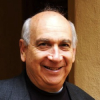Alan Dundes

Alan Dundes
Alan Dundes was a folklorist at the University of California, Berkeley. His work was said to have been central to establishing the study of folklore as an academic discipline. He wrote 12 books, both academic and popular, and edited or co-wrote two dozen more. One of his most notable articles was called "Seeing is Believing" in which he indicated that Americans value the sense of sight more than the other senses...
taken past trying
Polls are frequently taken to try to tease out or determine likely directions and trends, but once taken, they belong to the past, requiring that new polls be taken.
expectations progress impossible
Future orientation is combined with a notion and expectation of progress, and nothing is impossible.
moving cities people
Cities all over the world are getting bigger as more and more people move from rural to urban sites, but that has created enormous problems with respect to environmental pollution and the general quality of life.
trying students form
In my introductory course, Anthropology 160, the Forms of Folklore, I try to show the students what the major and minor genres of folklore are, and how they can be analyzed.
past disregard
Americans have a penchant for the future and tend to disregard the past.
moments trouble enjoy
Americans often have trouble enjoying the present moment.
past worldview formulas
I mentioned that one of the tripartite formulas in American worldview involves time: past, present, and future.
inspirational funny christmas
Light travels faster than sound. This is why some people appear bright until you hear them speak.
inspirational funny graduation
If a student takes the whole series of my folklore courses including the graduate seminars, he or she should learn something about fieldwork, something about bibliography, something about how to carry out library research, and something about how to publish that research.
children grandparent doe
Ancestor worship, or filial piety so characteristic of Asian cultures, for example, does not really resonate with Americans who favor children, not grandparents.
transition incorporation seems
Life, it seems, is nothing if not a series of initiations, transitions, and incorporations.
years identity taught
My academic identity is that of a folklorist, and for many years I have taught only folklore courses.
religious personal-knowledge class
I have a great advantage over many of my colleagues inasmuch as my students bring with them to class their own personal knowledge of national, regional, religious, ethnic, occupational, and family folklore traditions.
light trying culture
In the light of our culture, these are not unreasonable questions and tactics, but if once again, we try to see the lens through which we look, we can see that there is far too great an emphasis placed on the future.